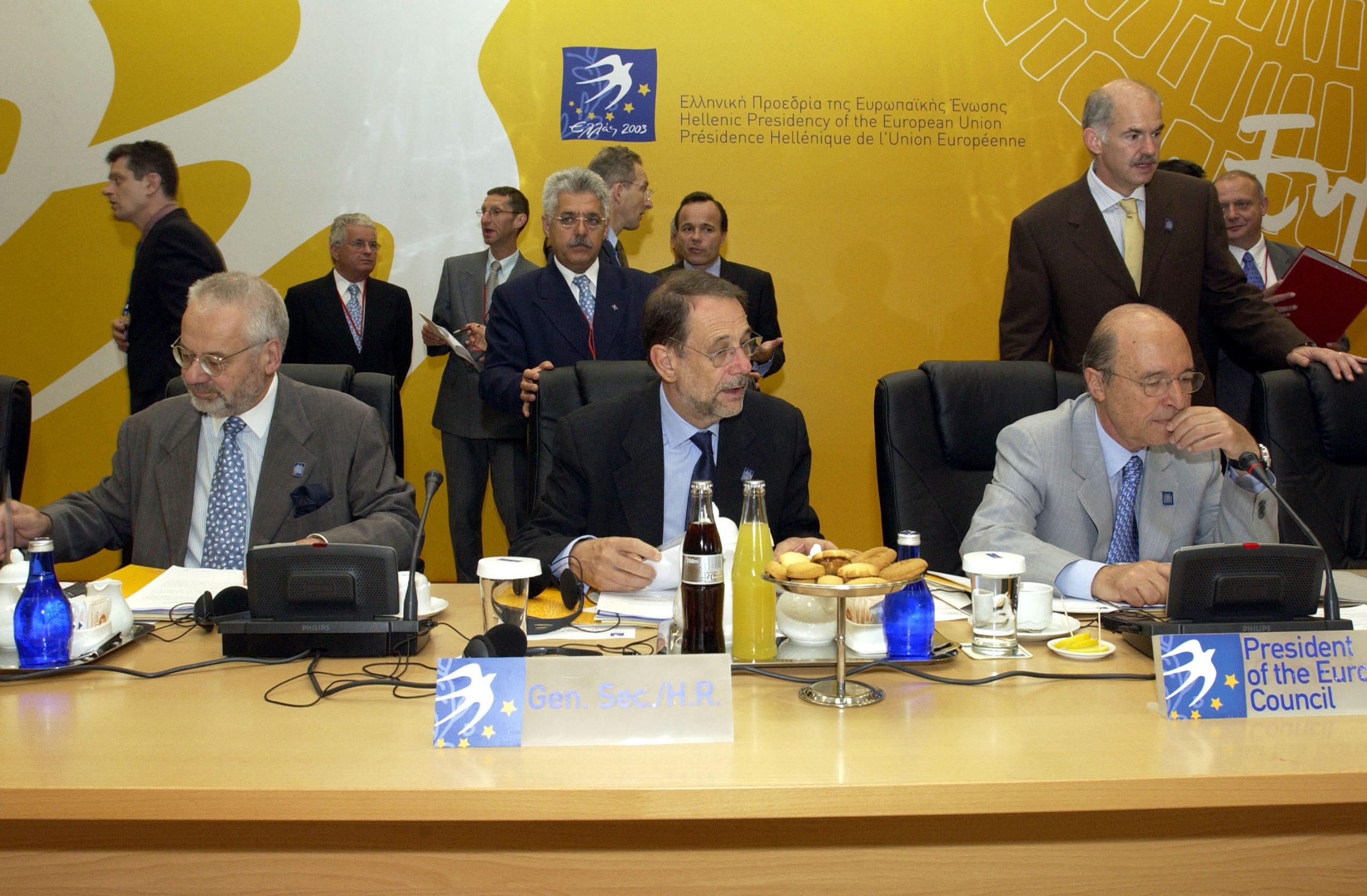Twenty years later: exposing the hidden cause for the delayed EU integration of the Western Balkans
In 2003, the historic Thessaloniki Summit marked a pivotal moment for Europe and its enduring commitment to enlargement and unity. At the heart of this gathering in the timeless Greek city was the visionary idea to bring the Western Balkans into the European family. The summit not only reaffirmed the EU's dedication to the enlargement process but also set into motion the integration pathways for countries emerging from a tumultuous past.
September 11, 2023 -
Antonios Nestoras
-
Hot TopicsIssue 5 2023Magazine

Proceedings of the EU/Western Balkans Summit in Thessaloniki in 2003 with (left to right) Erhard Busek, Special Co-ordinator of the Stability Pact for South Eastern Europe, Javier Solana, Secretary-General of the Council and High Representative for the CFSP, and Constantin Simitis, Greek Prime Minister and President-in-Office of the Council. Photo: European Commission

































